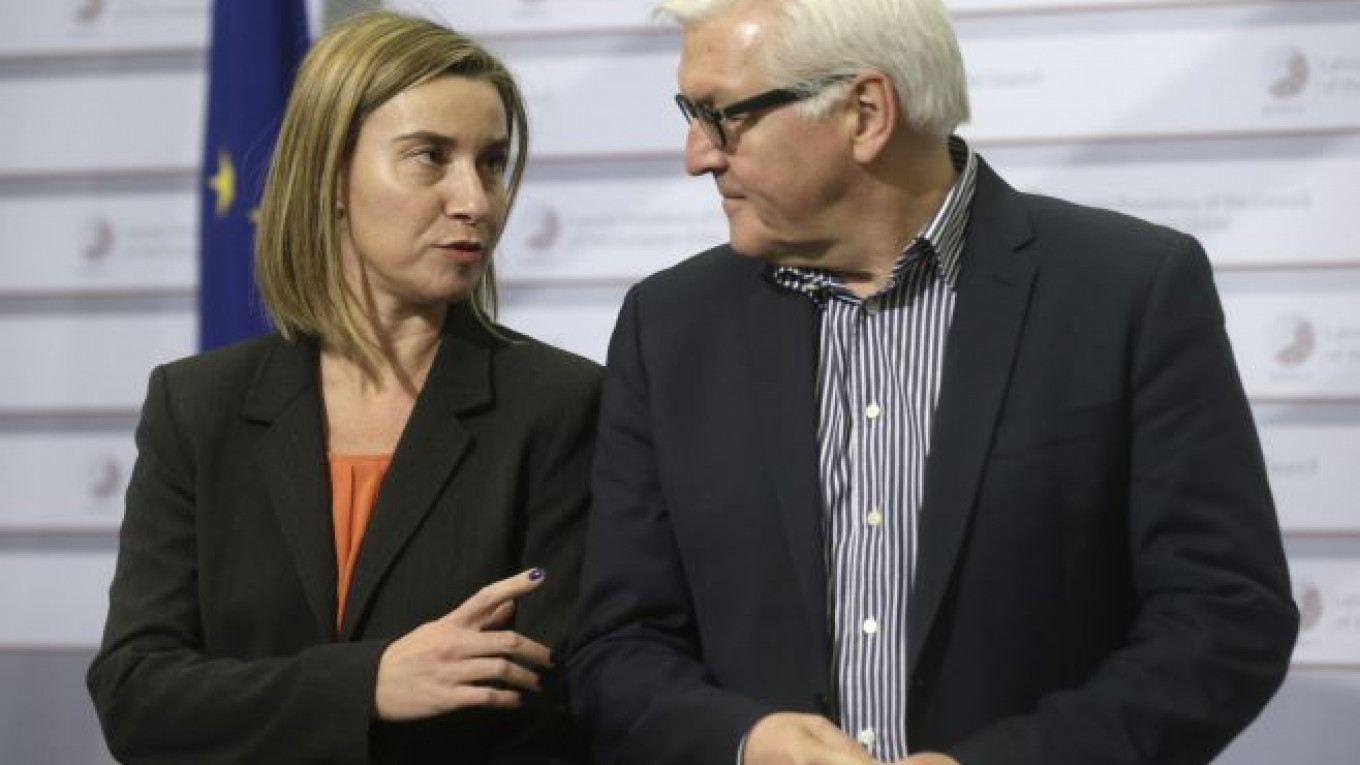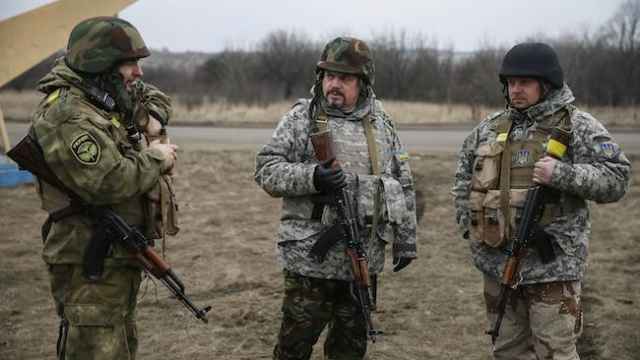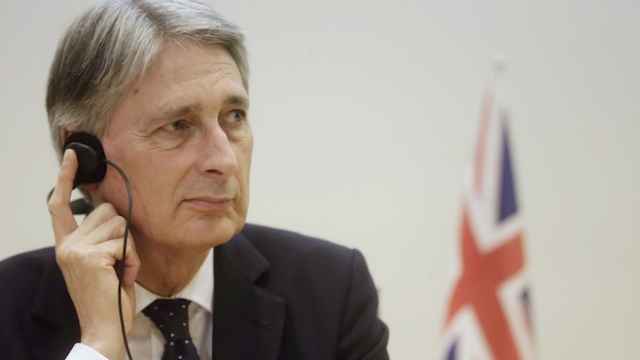EU foreign ministers showed little appetite on Saturday for stepping up pressure on Russia over Ukraine, preferring to give a fragile cease-fire a chance before deciding whether to apply more sanctions or even to extend existing ones.
Most ministers at an EU meeting in the Latvian capital pinned their hopes on the latest Minsk agreement succeeding and said the EU should only consider tightening sanctions if the cease-fire was seriously violated, such as by a separatist offensive on the Ukrainian port of Mariupol.
Both Kiev and pro-Russia separatists have accused each other of violence since last month's peace accord called for heavy weapons to be withdrawn from the frontline in east Ukraine.
Italian Foreign Minister Paolo Gentiloni saw "encouraging signals" on the ground in eastern Ukraine.
"At the moment we don't need either new sanctions or automatic renewals [of sanctions]," he told reporters.
Austrian Foreign Minister Sebastian Kurz agreed.
"There is a glimpse of hope since Minsk ... We should do everything now to improve the situation and decide later whether that improvement really happened and we can reduce the sanctions, or if we have to extend them," he said.
The comments reflect divisions within the 28-nation EU over sanctions on Russia, the bloc's biggest energy supplier.
While Britain, Poland and the Baltic states take a tough line, many other EU members, including Italy, Austria and Cyprus, are skeptical about sanctions. Alexis Tsipras's election victory in Greece has strengthened the dovish camp.
A key decision that the EU must face soon is whether to extend economic sanctions against Russia which it adopted for one year last July. Unanimity is required to extend them.
French Foreign Minister Laurent Fabius said on Friday that a debate was going on in the EU, with some countries saying the bloc should state now that it would extend the economic sanctions until the end of the year.
"Others say it would be a bit contradictory to say, on the one hand, Minsk is being applied and on the other hand we are going to go [extend sanctions] until the end of year," Fabius told reporters in Riga.
He said a decision on whether to extend existing economic sanctions on Russia could wait until around July.
"If Minsk develops positively, then it is likely that nothing new will be done on sanctions," he said. "If, on the other hand, there were serious violations to Minsk, sanctions remained available," he said.
Lithuanian Foreign Minister Linas Linkevicius, an EU hawk on Russia, said Friday that extending sanctions to the end of the year was "the least we can do".
Belgian Foreign Minister Didier Reynders said Saturday existing sanctions would probably be extended until year-end.
"What matters is that ... we maintain unity within the EU, and above all that we continue to put on pressure so that things change on the ground," he said.
A Message from The Moscow Times:
Dear readers,
We are facing unprecedented challenges. Russia's Prosecutor General's Office has designated The Moscow Times as an "undesirable" organization, criminalizing our work and putting our staff at risk of prosecution. This follows our earlier unjust labeling as a "foreign agent."
These actions are direct attempts to silence independent journalism in Russia. The authorities claim our work "discredits the decisions of the Russian leadership." We see things differently: we strive to provide accurate, unbiased reporting on Russia.
We, the journalists of The Moscow Times, refuse to be silenced. But to continue our work, we need your help.
Your support, no matter how small, makes a world of difference. If you can, please support us monthly starting from just $2. It's quick to set up, and every contribution makes a significant impact.
By supporting The Moscow Times, you're defending open, independent journalism in the face of repression. Thank you for standing with us.
Remind me later.






